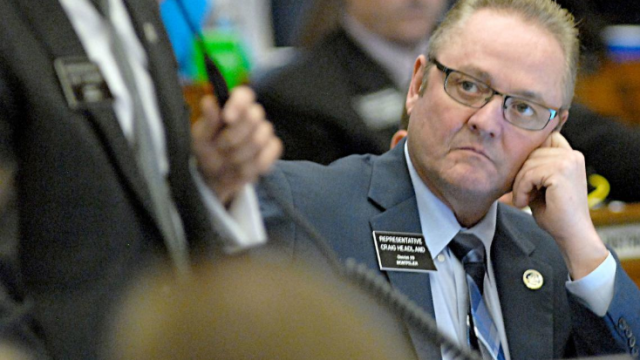Let’s Use the Legacy Fund to Lower Taxes, Not Just Grow Government

As the legislative session in Bismarck nears its end, some lawmakers have brought back the idea of using Legacy Fund earnings – earnings, mind you, not the principal – to buy down and perhaps eventually replace state income taxes.
The bill – HB1530, introduced by Rep. Craig Headland (R-Montpelier) and defeated earlier this session but recently resurrected – would transfer half of the Legacy Fund’s earnings in a given biennium to a fund that would in turn be used to offset state income taxes for individuals and businesses. As the principal in the Legacy Fund grows the amount of earnings directed toward offsetting income taxes should grow as well to the point where it obviates the need to levy the income tax at all.
There have been a lot of ideas thrown around for the Legacy Fund, and the various proponents of these ideas like to throw around the word “visionary” to describe them. But most of these ideas – whether it’s dumping yet more money into our already bloated university system or using the Legacy Fund to build more stuff – are about growing government.
[mks_pullquote align=”right” width=”300″ size=”24″ bg_color=”#ffffff” txt_color=”#000000″]Neither Wyoming nor South Dakota – both states with economic makeups very similar to North Dakota’s – have an income tax, yet they seem manage. What’s more, being rid of an income tax could be a boon to our state’s long-standing and as-yet-not-achieved goal of diversifying our commodity-based economy.[/mks_pullquote]
That’s one of the fears many of us who opposed the creation of the Legacy Fund have had since the beginning. That this pot of billions of dollars would become a fuel cell for growing government even as our tax burdens remain the same. Or, worse, grow.
Which isn’t to say that I’m against some of these projects. I think Governor Doug Burgum’s proposal to use Legacy Fund earnings for a project like the Theodore Roosevelt presidential library in Medora is a good one. I also like the idea of using the Legacy Fund to backstop bonding of infrastructure in the state.
But those ideas are mutually exclusive to this one. HB1530 uses only half of the Legacy Fund’s earnings, and none of the principal. There would still be plenty of room, if this is implemented, to use the Legacy Fund for some of those other purposes.
What the bill would do, however, is ensure that North Dakota taxpayers see a direct benefit from the Legacy Fund in the form of lower tax burdens both on an individual and business level.
“Certain Republicans in the North Dakota House likely will be popular with the state’s voters — at least those voters who aren’t deeply thinking about how a modest state income tax is a necessity in a commodity-based economy,” the Grand Forks Herald editorialized over the weekend in a piece opposing this legislation.
I’m not sure the income tax is a necessity for a commodity-based economy. Neither Wyoming nor South Dakota – both states with economic makeups very similar to North Dakota’s – have an income tax, yet they seem manage.
What’s more, being rid of an income tax could be a boon to our state’s long-standing and as-yet-not-achieved goal of diversifying our commodity-based economy.
What better incentive to work and do business in North Dakota could there be than the absence of a tax on personal and business income?
Again, if this legislation were to pass, it would leave room for the Legacy Fund to be used in other ways even as it produced a direct and palpable benefit to every working North Dakotan, all without reducing the revenues available for general fund spending.
Let’s hope lawmakers see the sense in that.




